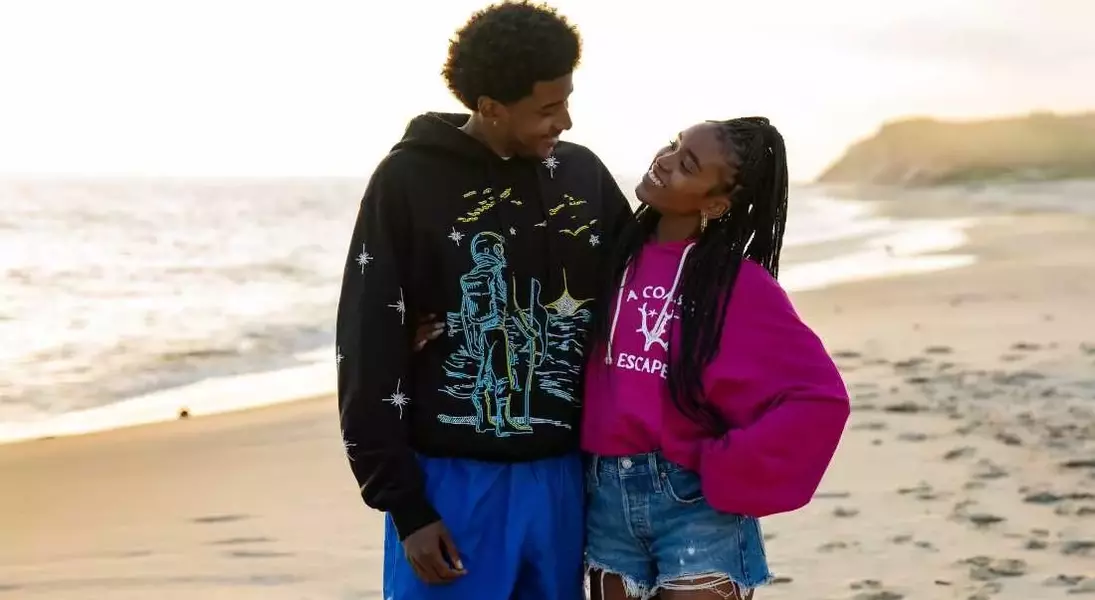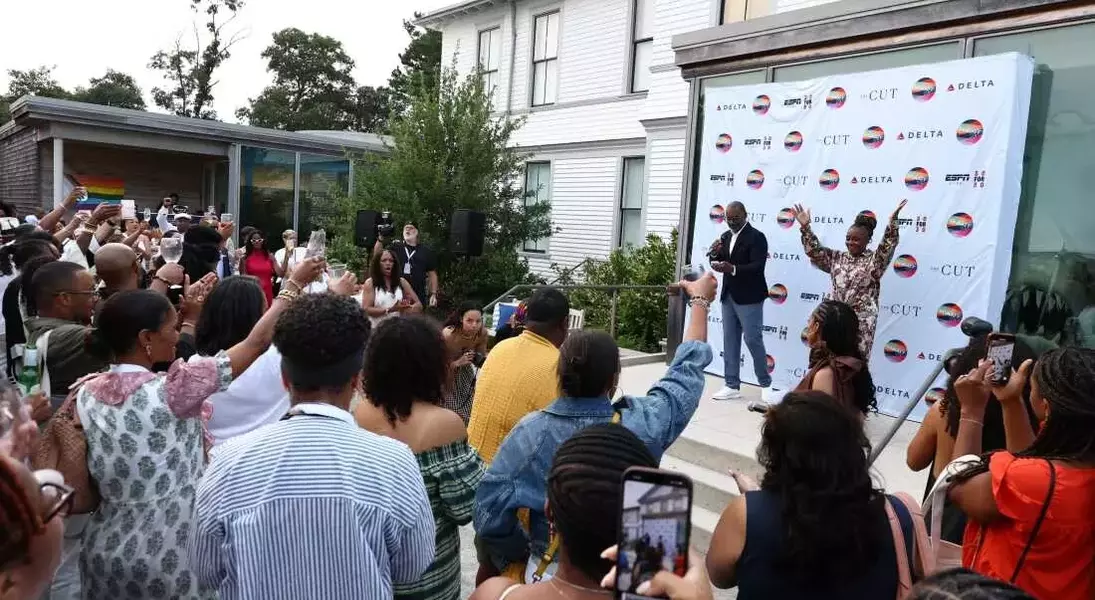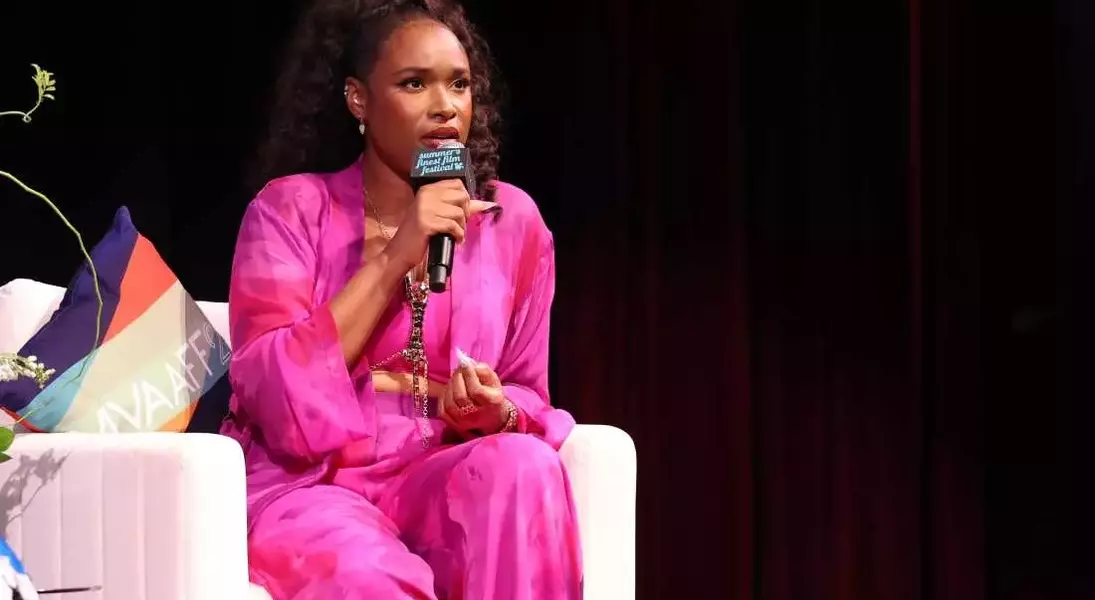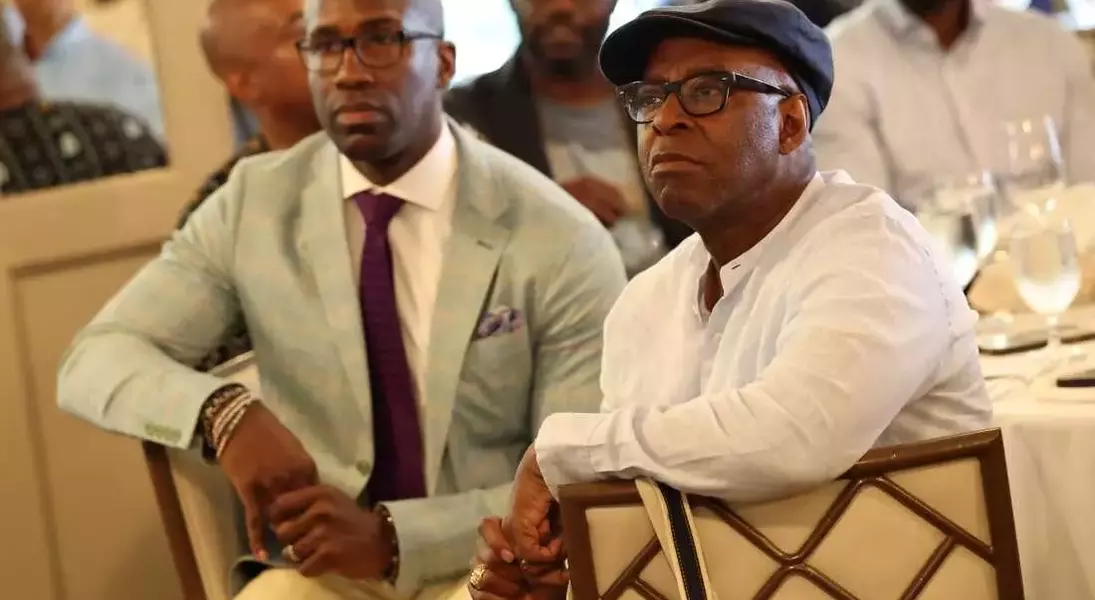





Where Vision Meets Voice: A Cinematic Oasis on Martha's Vineyard
Slick Rick's Cinematic Return: A New Vision Unveiled
During a recent visit with the iconic rapper Slick Rick, also known as Ricky Walters, one couldn't help but ponder the absence of his signature eye patch. However, his presence, adorned with mirrored shades, exuded an air of sophisticated ease befitting Martha's Vineyard, a renowned haven for the Black elite. Rick was there to introduce his ambitious visual project, 'Victory,' a film adaptation of his first album in 26 years. He expressed a desire to assess if this refined audience would embrace his artistic contribution, hoping it might resonate deeply and offer fresh inspiration, without causing too much disruption.
A Warm Reception for Artistic Innovation
Slick Rick's concerns proved unfounded. Despite the audience being more mature than the typical club-goers who once championed his classic tracks like 'Children's Story' and 'La Di Da Di,' they enthusiastically embraced the compelling visuals and vibrant sounds of 'Victory.' This multi-faceted film seamlessly weaves together creative music videos from his latest album into a singular, immersive cinematic experience. Developed in collaboration with actor and DJ Idris Elba, who released the album on his 7Wallace label, 'Victory' features dynamic imagery crafted by Nigerian director Meji Alabi, known for his work on Beyoncé's 'Black is King.' The film's expansive aesthetics are truly captivating, transporting viewers from a London living room envisioned for the song 'Foreign' to a lively underground club setting for 'Cuz I'm Here,' inspired by Elba's DJ sets. As Rick quipped in the film, \"I transformed my blindness into a luxury brand,\" a statement that garnered appreciative nods from the audience. This showcased a powerful resurgence for the veteran rap artist, leaving many hopeful for broader recognition of this remarkable collaboration.
MVAAFF: A Sanctuary for Black Artistry
This spirit of artistic support is palpable at the Martha's Vineyard African American Film Festival, now in its 23rd year. The festival provides an invaluable platform for Black artists to launch their groundbreaking projects within an exceptionally welcoming environment. Martha's Vineyard itself holds deep historical and cultural significance for many Black individuals, serving as a cherished retreat. The MVAAFF capitalizes on this unique setting to highlight works by artists who present a rich tapestry of perspectives and images, often overlooked by larger, more mainstream festivals. The festival, which continues until August 9th, features appearances by notable figures such as Michelle Obama, Spike Lee, and Jennifer Hudson. Attending screenings and engaging with filmmakers over the initial days offered a glimpse into a compelling array of ambitious works centered on Black experiences, narratives that might struggle to find recognition or encouragement elsewhere.
Diverse Narratives and Critical Acclaim
While critics might meticulously analyze narrative structures or pinpoint missing elements in documentaries, the primary focus for attendees at MVAAFF is to celebrate and champion Black artists. This support is particularly crucial in an era where efforts to amplify historically marginalized voices are sometimes misconstrued. Over several days, a wealth of impactful productions were presented, including the poignant short film 'Lost/Found,' starring Eric Roberts as an elderly white man grappling with guilt over a past accident that claimed the life of a young Black father. Viola Davis's powerful narration amplified the moving documentary 'The Ebony Canal,' which addresses the critical issue of Black infant mortality. Additionally, Lil Rel Howery delivered a comedic yet insightful performance as a high school principal in 'The Class Reunion.' Co-star Barshea Lowery, who also penned the film, shared that he conceptualized 'The Class Reunion' as a response to John Hughes films set in his native Chicago that conspicuously lacked Black characters. Witnessing this film, filled with familiar humor and set in a town that resonated with his own upbringing, created a profound and immediate connection, surpassing even his experience watching 'The Breakfast Club' as a youth. This prompted a reflective question: is this how the majority of white audiences feel when viewing a typical Hollywood production?
Mara Brock Akil's Love Letter to the Vineyard and Community Building
The most enthusiastic response at this year's festival was undoubtedly for TV producer Mara Brock Akil, who presented the finale of the first season of her Netflix series 'Forever' to a packed audience. Akil, the creative force behind beloved Black-centered sitcoms like 'Girlfriends' and 'The Game,' has been a long-time resident of Martha's Vineyard, having discovered the area in the mid-1990s while working on 'Moesha.' Her series 'Forever' is a Black-focused coming-of-age romance, loosely inspired by Judy Blume's novel of the same name. Its fifth episode, 'The Vineyard,' is set on the island, serving as a heartfelt homage that captures the rhythms of a successful Black family who have consistently summered there. Following a Q&A session, Akil described the experience of showcasing the episode as akin to introducing her cherished 'baby' to an adoring family. She revealed that filming on the island initially raised concerns about blending work with her personal sanctuary, but she quickly realized the importance of authentically portraying not only Black culture but also the unique spirit of Martha's Vineyard. Akil used the term \"relaxed\" to describe her profound connection to the island, a sentiment not always associated with the lived experiences of Black individuals. This sense of ease, she noted, stems from a deep historical connection, a feeling that \"our ancestors are in this land… we've created more safety and space for this place that we call home.\" She added, \"And shouldn't home feel that way?\"
Navigating Industry Challenges and Fostering New Horizons
Akil's sense of calm may also be attributed to Netflix's renewal of 'Forever' for a second season. However, she acknowledged the increasing challenges faced by Black creatives in an industry that is currently re-evaluating its commitment to diversity and inclusion. Akil expressed concern that a reduction in resources and opportunities could force many talented individuals out of the business, making it difficult for them to return. \"That's an assault. They're just moving the goalposts and offering less resources,\" she stated. \"So I think we have to pivot to building a new community... that's what I'm looking for.\" From the inspiring works showcased to the supportive community present, the Martha's Vineyard African American Film Festival stands as a potent force in fostering this new artistic landscape.
